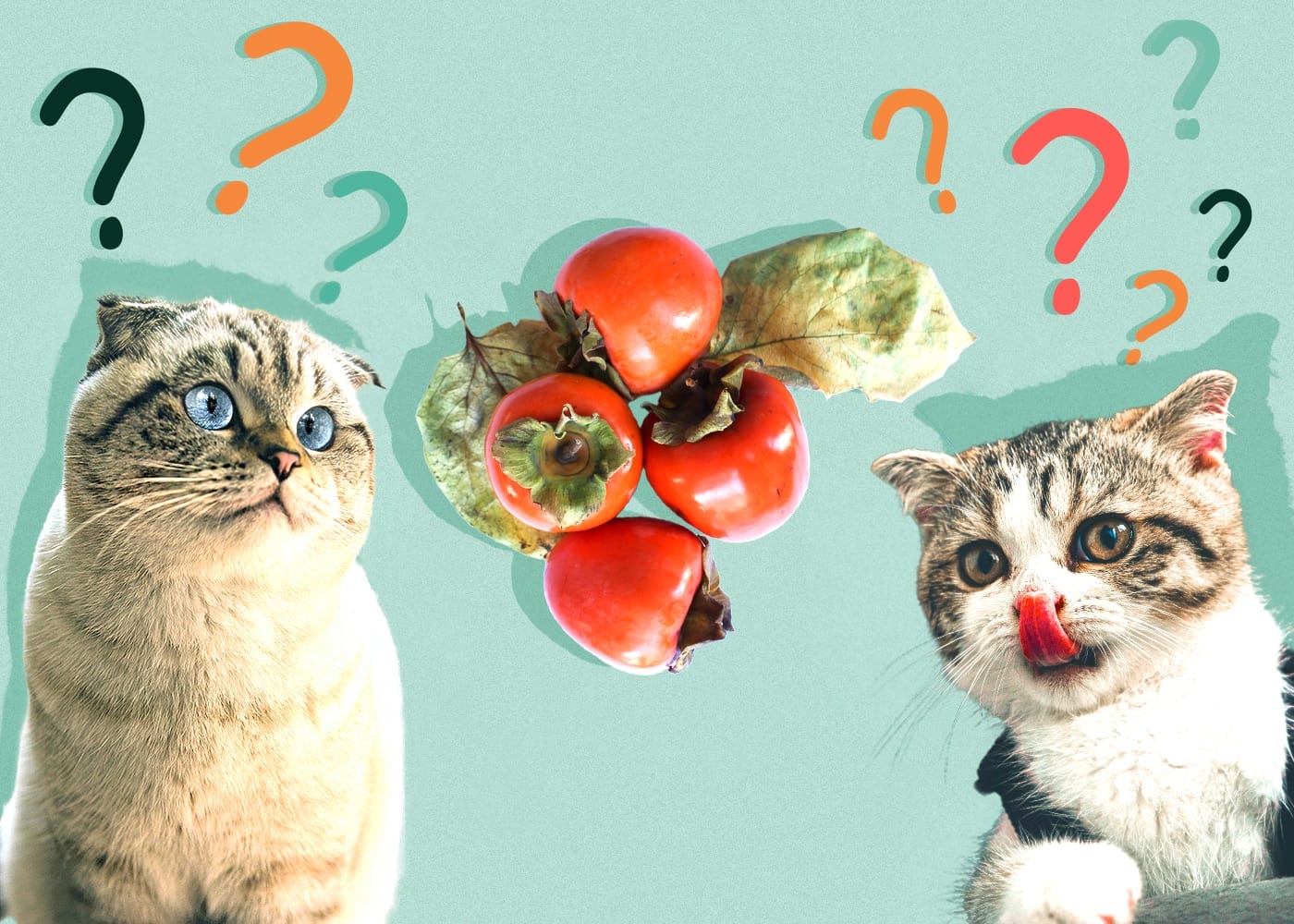Introduction
Because our cats are frequently interested in what we eat, we wonder if some of the foods we eat are safe for them. Persimmons are one of these, and because of their sweet flavor, people wonder if cats can eat them. This study investigates the nutritional value of persimmons, including their potential benefits and risks for cats, as well as their safety, digestibility, and potential poisoning symptoms.
We'll also discuss how to avoid accidentally eating too much, how much to eat and how often, and how important it is to eat a variety of foods. During this trip, we'll concentrate on alternative foods and supplements that cater to a cat's specific nutritional requirements.
Persimmon Nutritional Composition
Persimmons may appear to be a healthy option due to their bright color and natural sweetness. However, to determine whether they are suitable for a cat's diet, their nutritional content must be broken down.
The Advantages of Feeding Your Cat Persimmons
Persimmons are high in fiber, antioxidants, and vitamins such as A and C. In theory, these parts could be beneficial to the health of cats as well. But there are other things to consider.
Potential Dangers of Feeding Persimmons to Cats
Although persimmons are beneficial in some ways, they also pose serious health risks. The high sugar content of the fruit, combined with the fiber and water, can make it difficult for cats to digest. Furthermore, persimmon seeds and skin contain chemicals that can be harmful to cats.
Is it safe for cats to eat persimmons?
Can Cats Consume Persimmons? Cats should not eat persimmons, especially if they are not ripe or have the skin and seeds still attached. Even in small amounts, the risk of stomach problems and possible toxicity outweighs any apparent benefits.
Persimmon Digestibility in Cats
Plant-based foods, such as persimmons, are difficult for cats to digest. The high sugar and fiber content may make you feel bloated, and some of the chemicals in the seeds and skin may be harmful.
Persimmon Poisoning Symptoms in Cats
Can Cats Consume Persimmons? If a cat eats a persimmon, it may vomit, have diarrhea, and experience stomach pain. In the worst-case scenario, kidney or liver damage may occur. If you notice any of these symptoms, you should see a veterinarian right away.
Preventing Unintentional Consumption
The best way to keep cats from accidentally eating persimmons is to keep them away from them. Keep persimmons in a secure location and inform your family and guests about the dangers of sharing human food with pets.
How Many Persimmons Should You Feed and How Often?
Can Cats Consume Persimmons? You should only give your cat a tiny piece of ripe persimmon without seeds or skin on rare occasions. Persimmons should not be consumed on a regular basis by cats due to the sugar, fiber, and potential toxicity.
Supplements and Alternatives
The best way to meet a cat's nutritional needs is to feed him specialized cat food. Lean proteins and health-conscious cat treats are safer alternatives to persimmons.
Finally, can cats eat persimmons?
Finally, cats should avoid eating persimmons because they are high in sugar, contain a lot of fiber, and may be poisonous. Cats get the best nutrition when they eat food designed specifically for them.
Last Thoughts on Feeding Persimmons to Cats
Can Cats Consume Persimmons? Understanding what cats need to eat is critical for their overall health and well-being. A well-balanced diet tailored to their needs will ensure that they receive all of the nutrients they require.
Consult your veterinarian for advice on what to feed your pet.
It is critical to consult with a veterinarian before feeding human food to a cat. Professional advice ensures that your choices meet your cat's health and nutrition requirements.
Can Cats Consume Persimmons? Even though our pets hold a special place in our hearts, it is important to remember that our food preferences may differ from what our beloved cats require.

